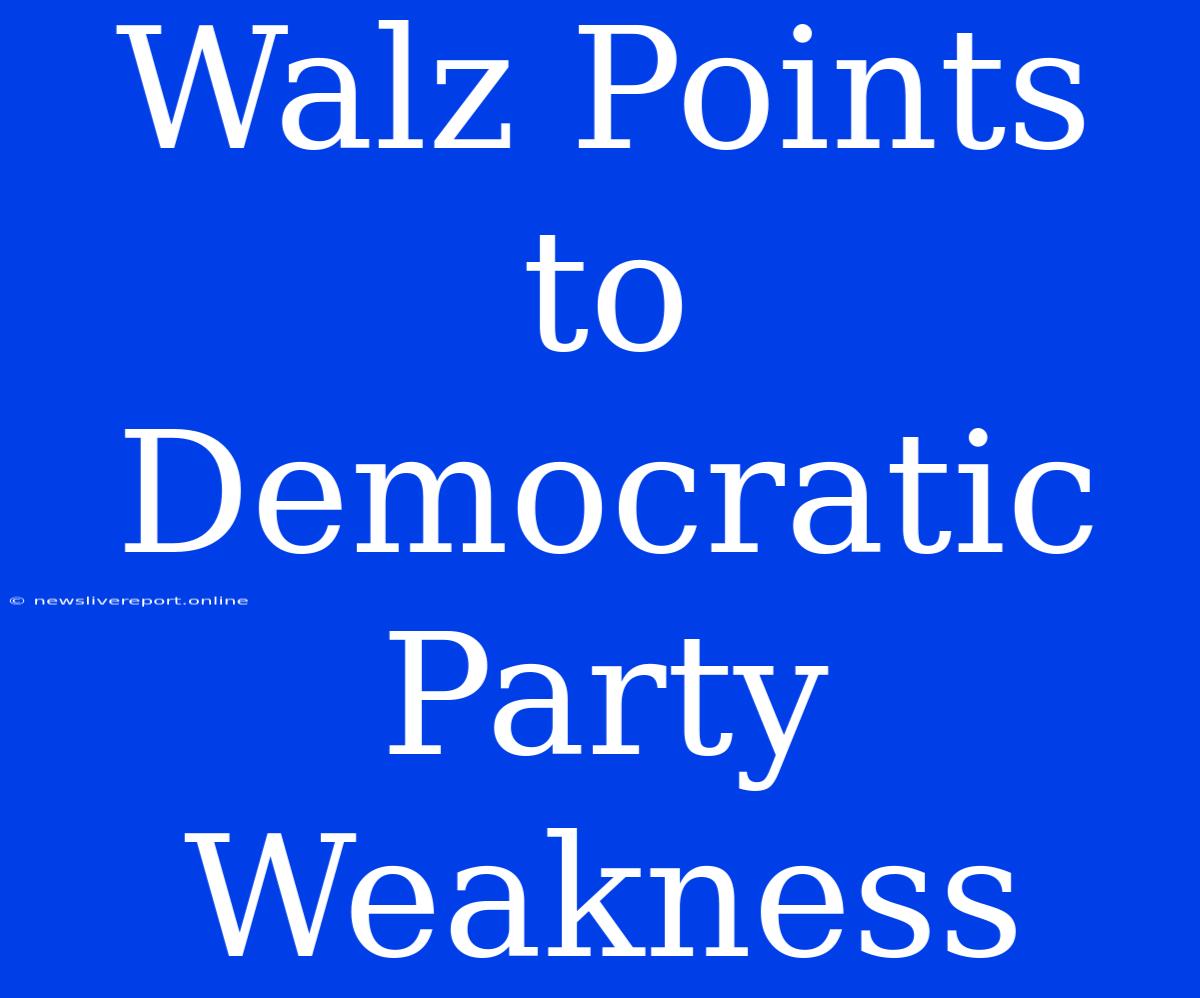Walz's "Weakness" Comment Sparks Controversy in Democratic Party
Saint Paul, MN - Governor Tim Walz's recent comments about the Democratic Party's "weakness" have sparked controversy and fueled speculation about the party's direction heading into the 2024 election.
During a private fundraising event for a Democratic candidate, Walz reportedly expressed concern over the party's perceived lack of a clear message and a coherent strategy for winning back voters. He suggested that the party needed to focus more on issues that resonate with working-class voters, particularly in rural areas, and avoid being seen as out of touch with the concerns of everyday Americans.
"We need to get back to basics," Walz reportedly said. "We need to talk about the things that matter to people: jobs, healthcare, education. We need to stop being so focused on identity politics and start talking about the issues that really affect people's lives."
His remarks, while not explicitly critical of any particular individuals or groups within the Democratic Party, have been interpreted by some as a thinly veiled attack on the party's progressive wing. Progressive activists have been increasingly vocal in their calls for more radical change, often advocating for policies that some consider to be too far left for the mainstream.
Critics of Walz's comments argue that he is attempting to appease centrist Democrats and Republicans by adopting a more moderate tone, at the expense of the party's progressive base. They point to the recent success of progressive candidates in various elections as evidence that the party's future lies in embracing bold, progressive policies.
Supporters of Walz, on the other hand, contend that his focus on core issues and a more moderate approach are essential for winning back voters who have been alienated by the party's perceived focus on divisive identity politics. They argue that the party needs to find a way to bridge the divide between progressives and moderates in order to present a united front to voters.
The controversy surrounding Walz's comments comes at a critical time for the Democratic Party. With the 2024 presidential election looming, the party is facing a number of challenges, including a potentially hostile political climate and a divided electorate.
It remains to be seen how the party will respond to Walz's call for unity and a return to core issues. However, one thing is clear: the party's direction in the coming months and years will be shaped in large part by its ability to address the concerns and aspirations of voters across the political spectrum.
This is a developing story. Stay tuned for updates as this controversy unfolds.

